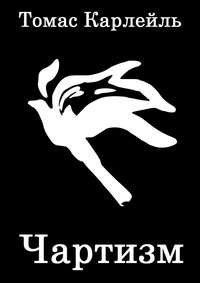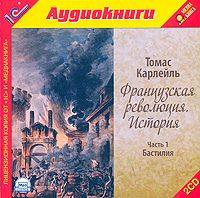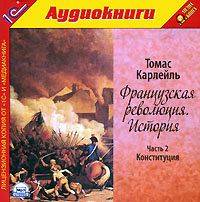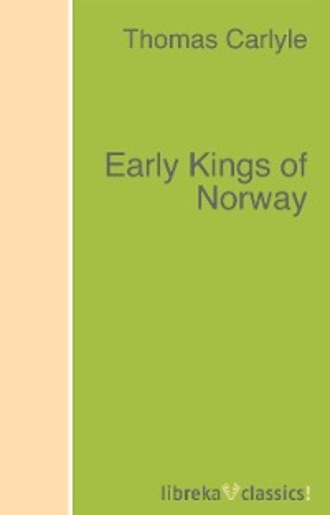
Полная версия
Early Kings of Norway
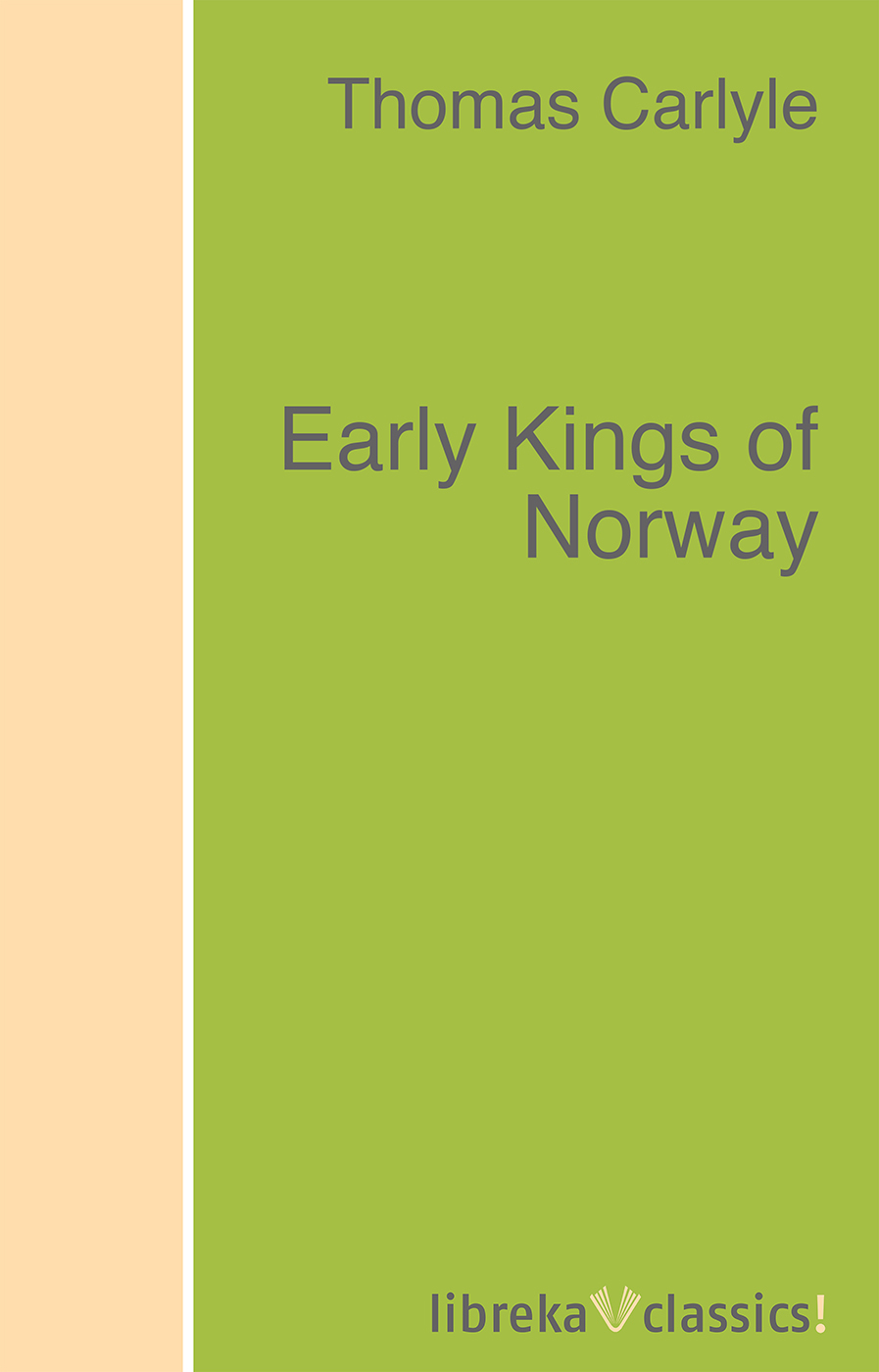

Titel: Early Kings of Norway
von William Shakespeare, H. G. Wells, Henry Van Dyke, Thomas Carlyle, Oscar Wilde, Joseph Conrad, Henry James, Anthony Hope, Henry Fielding, Giraldus Cambrensis, Daniel Defoe, Grammaticus Saxo, Edgar Rice Burroughs, Hugh Lofting, Agatha Christie, Sinclair Lewis, Eugène Brieux, Upton Sinclair, Booth Tarkington, Sax Rohmer, Jack London, Anna Katharine Green, Sara Jeannette Duncan, Xenophon, Alexandre Dumas père, John William Draper, Alice Christiana Thompson Meynell, Bram Stoker, Honoré de Balzac, William Congreve, Louis de Rougemont, Nikolai Vasilievich Gogol, Rolf Boldrewood, François Rabelais, Lysander Spooner, B. M. Bower, Henry Rider Haggard, William Hickling Prescott, Lafcadio Hearn, Robert Herrick, Jane Austen, Mark Twain, Mary Roberts Rinehart, Charles Babbage, Kate Douglas Smith Wiggin, Frank L. Packard, George Meredith, John Merle Coulter, Irvin S. Cobb, Edwin Mims, John Tyndall, Various, Charles Darwin, Sidney Lanier, Henry Lawson, Niccolò Machiavelli, George W. Crile, Théophile Gautier, Noah Brooks, James Thomson, Zane Grey, J. M. Synge, Virginia Woolf, Conrad Aiken, Edna St. Vincent Millay, Helen Cody Wetmore, Ayn Rand, Sir Thomas Malory, Gustave Flaubert, Edmond Rostand, Charlotte Brontë, Edith Wharton, Giles Lytton Strachey, Myrtle Reed, Ernest Bramah, Jules Verne, H. L. Mencken, H. Stanley Redgrove, Victor Lefebure, Edna Lyall, John Masefield, Charles Kingsley, Robert Burns, Edgar Lee Masters, Victor [pseud.] Appleton, Ellis Parker Butler, Mary Lamb, Charles Lamb, Johann Wolfgang von Goethe, Kenneth Grahame, Charles Dickens, John Ruskin, John Galt, James J. Davis, Owen Wister, William Blades, Sir Hall Caine, Sir Max Beerbohm, Baron Edward John Moreton Drax Plunkett Dunsany, Bret Harte, E. Phillips Oppenheim, Thomas Henry Huxley, A. B. Paterson, John N. Reynolds, Walter Dill Scott, Hans Gustav Adolf Gross, T. S. Eliot, Walt Whitman, Arthur Ransome, Jane Addams, Elizabeth, David Lindsay, Helen Bannerman, Charles A. Oliver, J. M. Barrie, Robert F. Murray, Andrew Lang, Jerome K. Jerome, Francis Thompson, Sydney Waterlow, Andrew Dickson White, Benjamin N. Cardozo, Karl Marx, Edouard Louis Emmanuel Julien Le Roy, Margaret Hill McCarter, Sir Donald Mackenzie Wallace, Howard Trueman, L. M. Montgomery, Frank T. Bullen, Baron Alfred Tennyson Tennyson, Jonathan Nield, Henry Wadsworth Longfellow, Charles Reade, Ouida, Washington Irving, Benjamin Louis Eulalie de Bonneville, Sir Walter Scott, Stewart Edward White, Arthur Hugh Clough, Baron Edward Bulwer Lytton Lytton, C.-F. Volney, T. Troward, graf Leo Tolstoy, Christopher Morley, James Madison, Alexander Hamilton, John Jay, Gilbert White, Percival Lowell, Frederick Marryat, Robert Graves, Thomas Holmes, Wilkie Collins, Maria Edgeworth, Katherine Mansfield, E. Nesbit, Olive Schreiner, Jeronimo Lobo, O. Henry, James Slough Zerbe, Donald Ogden Stewart, Johanna Spyri, Eleanor H. Porter, William Tatem Tilden, Sol Plaatje, Rafael Sabatini, William Makepeace Thackeray, George Gissing, Maksim Gorky, Baron Thomas Babington Macaulay Macaulay, H. G. Keene, Saki, R. B. Cunninghame Graham, Thomas Hughes, David Nunes Carvalho, Vicente Blasco Ibáñez, Carry Amelia Nation, John Fiske, Bernard Shaw, Elbridge Streeter Brooks, William Holmes McGuffey, Edward Everett Hale, Louis Ginzberg, Chester K. Steele, Christopher Marlowe, Plato, John Lord, Shakespeare, Martin Luther, Frances Hodgson Burnett, Howard Pyle, Charles Morris, Edward Carpenter, Maurice Leblanc, James Boswell, William Osler, William Ernest Henley, Theron Q. Dumont, Horatio Alger, Abraham Myerson, Joel Benton, Eden Phillpotts, Anonymous, Robert Louis Stevenson, Lloyd Osbourne, Cleland Boyd McAfee, Robert Williams Wood, H. C. Andersen, Edna Ferber, James Stephens, John Jacob Astor, Alexandre Dumas fils, Hilda Conkling, J. Storer Clouston, Julian Hawthorne, Ernest Albert Savage, Mary Eleanor Wilkins Freeman, Fernando de Rojas, Richard Harding Davis, Charles Whibley, Thomas Dixon, Sir Arthur Conan Doyle, George MacDonald, Thomas H. Burgoyne, Belle M. Wagner, Émile Gaboriau, à Kempis Thomas, United States. Central Intelligence Agency, Herbert Darling Foster, John Chipman Farrar, Lucius Apuleius, Olive Gilbert, Sojourner Truth, Arthur Judson Brown, Burbank L. Todd, Gaston Leroux, Margaret Sanger, Jr. Martin Luther King, Mary Johnston, S. A. Reilly, G. K. Chesterton, Elizabeth Cleghorn Gaskell, George Iles, E. W. Hornung, Edward Huntington Williams, Henry Smith Williams, Nathaniel W. Stephenson, Ellen Marriage, Homer, Anton Pavlovich Chekhov, J. F. C. Hecker, John Milton, Natalie Sumner Lincoln, Baroness Emmuska Orczy Orczy, Thomas Bailey Aldrich, Mary Esther Miller MacGregor, William MacLeod Raine, Earl Derr Biggers, Helen Nicolay, Ruth Ogden, Thornton W. Burgess, Mary Murdoch Mason, Auguste Groner, John Lawson, Emma Wolf, Theodore Dreiser, Roger Ascham, John Charles McNeill, Owen Meredith, L. Adams Beck, Rudyard Kipling, Alphonse Daudet, Theodore Roosevelt, Henry Cabot Lodge, Anthony Trollope, A. A. Milne, Elia Wilkinson Peattie, J. Fitzgerald Molloy, James Fenimore Cooper, Alexander Whyte, Jean-Henri Fabre, E. R. Punshon, Neltje Blanchan, Porter Lander MacClintock, William Darnall MacClintock, Ida Pfeiffer, Stanley John Weyman, Max Brand, Herman Melville, William Joseph Long, William Cotton, Dorothy Kilner, Sarah Fielding, Samuel Butler, A. C. Seward, Harold MacGrath, Nathaniel Hawthorne, William J. Kountz, Arthur B. Reeve, Susan Fenimore Cooper, Richard Brinsley Sheridan, Anatole France
ISBN 978-3-7429-1870-3
Alle Rechte vorbehalten.
Es ist ohne vorherige schriftliche Erlaubnis nicht gestattet, dieses Werk im Ganzen oder in Teilen zu vervielfältigen oder zu veröffentlichen.
EARLY KINGS OF NORWAY.
by Thomas Carlyle
Transcriber's Note: The text has been taken from volume 19 of the "Sterling Edition" of Carlyle's complete works. All footnotes have been collected as endnotes. The pound (currency) symbol has been replaced by the word "pounds".
The Icelanders, in their long winter, had a great habit of writing; and were, and still are, excellent in penmanship, says Dahlmann. It is to this fact, that any little history there is of the Norse Kings and their old tragedies, crimes and heroisms, is almost all due. The Icelanders, it seems, not only made beautiful letters on their paper or parchment, but were laudably observant and desirous of accuracy; and have left us such a collection of narratives (Sagas, literally "Says") as, for quantity and quality, is unexampled among rude nations. Snorro Sturleson's History of the Norse Kings is built out of these old Sagas; and has in it a great deal of poetic fire, not a little faithful sagacity applied in sifting and adjusting these old Sagas; and, in a word, deserves, were it once well edited, furnished with accurate maps, chronological summaries, &c., to be reckoned among the great history-books of the world. It is from these sources, greatly aided by accurate, learned and unwearied Dahlmann, 1 the German Professor, that the following rough notes of the early Norway Kings are hastily thrown together. In Histories of England (Rapin's excepted) next to nothing has been shown of the many and strong threads of connection between English affairs and Norse.
Contents
CHAPTER I. HARALD HAARFAGR. CHAPTER II. ERIC BLOOD-AXE AND BROTHERS. CHAPTER III. HAKON THE GOOD. CHAPTER IV. HARALD GREYFELL AND BROTHERS. CHAPTER V. HAKON JARL. CHAPTER VI. OLAF TRYGGVESON. CHAPTER VII. REIGN OF OLAF TRYGGVESON. CHAPTER VIII. JARLS ERIC AND SVEIN. CHAPTER IX. KING OLAF THE THICK-SET'S VIKING DAYS. CHAPTER X. REIGN OF KING OLAF THE SAINT. CHAPTER XI. MAGNUS THE GOOD AND OTHERS. CHAPTER XII. OLAF THE TRANQUIL, MAGNUS BAREFOOT, AND SIGURD THE CRUSADER. CHAPTER XIII. MAGNUS THE BLIND, HARALD GYLLE, AND MUTUAL EXTINCTION OF THE HAARFAGRS. CHAPTER XIV. SVERRIR AND DESCENDANTS, TO HAKON THE OLD. CHAPTER XV. HAKON THE OLD AT LARGS. CHAPTER XVI. EPILOGUE.FOOTNOTES:
CHAPTER I. HARALD HAARFAGR.
Till about the Year of Grace 860 there were no kings in Norway, nothing but numerous jarls,—essentially kinglets, each presiding over a kind of republican or parliamentary little territory; generally striving each to be on some terms of human neighborhood with those about him, but,—in spite of "Fylke Things" (Folk Things, little parish parliaments), and small combinations of these, which had gradually formed themselves,—often reduced to the unhappy state of quarrel with them. Harald Haarfagr was the first to put an end to this state of things, and become memorable and profitable to his country by uniting it under one head and making a kingdom of it; which it has continued to be ever since. His father, Halfdan the Black, had already begun this rough but salutary process,—inspired by the cupidities and instincts, by the faculties and opportunities, which the good genius of this world, beneficent often enough under savage forms, and diligent at all times to diminish anarchy as the world's worst savagery, usually appoints in such cases,—conquest, hard fighting, followed by wise guidance of the conquered;—but it was Harald the Fairhaired, his son, who conspicuously carried it on and completed it. Harald's birth-year, death-year, and chronology in general, are known only by inference and computation; but, by the latest reckoning, he died about the year 933 of our era, a man of eighty-three.
The business of conquest lasted Harald about twelve years (A.D. 860-872?), in which he subdued also the vikings of the out-islands, Orkneys, Shetlands, Hebrides, and Man. Sixty more years were given him to consolidate and regulate what he had conquered, which he did with great judgment, industry and success. His reign altogether is counted to have been of over seventy years.
The beginning of his great adventure was of a romantic character.—youthful love for the beautiful Gyda, a then glorious and famous young lady of those regions, whom the young Harald aspired to marry. Gyda answered his embassy and prayer in a distant, lofty manner: "Her it would not beseem to wed any Jarl or poor creature of that kind; let him do as Gorm of Denmark, Eric of Sweden, Egbert of England, and others had done,—subdue into peace and regulation the confused, contentious bits of jarls round him, and become a king; then, perhaps, she might think of his proposal: till then, not." Harald was struck with this proud answer, which rendered Gyda tenfold more desirable to him. He vowed to let his hair grow, never to cut or even to comb it till this feat were done, and the peerless Gyda his own. He proceeded accordingly to conquer, in fierce battle, a Jarl or two every year, and, at the end of twelve years, had his unkempt (and almost unimaginable) head of hair clipt off,—Jarl Rognwald (Reginald) of More, the most valued and valuable of all his subject-jarls, being promoted to this sublime barber function;—after which King Harald, with head thoroughly cleaned, and hair grown, or growing again to the luxuriant beauty that had no equal in his day, brought home his Gyda, and made her the brightest queen in all the north. He had after her, in succession, or perhaps even simultaneously in some cases, at least six other wives; and by Gyda herself one daughter and four sons.
Harald was not to be considered a strict-living man, and he had a great deal of trouble, as we shall see, with the tumultuous ambition of his sons; but he managed his government, aided by Jarl Rognwald and others, in a large, quietly potent, and successful manner; and it lasted in this royal form till his death, after sixty years of it.
These were the times of Norse colonization; proud Norsemen flying into other lands, to freer scenes,—to Iceland, to the Faroe Islands, which were hitherto quite vacant (tenanted only by some mournful hermit, Irish Christian fakir, or so); still more copiously to the Orkney and Shetland Isles, the Hebrides and other countries where Norse squatters and settlers already were. Settlement of Iceland, we say; settlement of the Faroe Islands, and, by far the notablest of all, settlement of Normandy by Rolf the Ganger (A.D. 876?). 2
Rolf, son of Rognwald, 3 was lord of three little islets far north, near the Fjord of Folden, called the Three Vigten Islands; but his chief means of living was that of sea robbery; which, or at least Rolf's conduct in which, Harald did not approve of. In the Court of Harald, sea-robbery was strictly forbidden as between Harald's own countries, but as against foreign countries it continued to be the one profession for a gentleman; thus, I read, Harald's own chief son, King Eric that afterwards was, had been at sea in such employments ever since his twelfth year. Rolf's crime, however, was that in coming home from one of these expeditions, his crew having fallen short of victual, Rolf landed with them on the shore of Norway, and in his strait, drove in some cattle there (a crime by law) and proceeded to kill and eat; which, in a little while, he heard that King Harald was on foot to inquire into and punish; whereupon Rolf the Ganger speedily got into his ships again, got to the coast of France with his sea-robbers, got infestment by the poor King of France in the fruitful, shaggy desert which is since called Normandy, land of the Northmen; and there, gradually felling the forests, banking the rivers, tilling the fields, became, during the next two centuries, Wilhelmus Conquaestor, the man famous to England, and momentous at this day, not to England alone, but to all speakers of the English tongue, now spread from side to side of the world in a wonderful degree. Tancred of Hauteville and his Italian Normans, though important too, in Italy, are not worth naming in comparison. This is a feracious earth, and the grain of mustard-seed will grow to miraculous extent in some cases.
Harald's chief helper, counsellor, and lieutenant was the above-mentioned Jarl Rognwald of More, who had the honor to cut Harald's dreadful head of hair. This Rognwald was father of Turf-Einar, who first invented peat in the Orkneys, finding the wood all gone there; and is remembered to this day. Einar, being come to these islands by King Harald's permission, to see what he could do in them,—islands inhabited by what miscellany of Picts, Scots, Norse squatters we do not know,—found the indispensable fuel all wasted. Turf-Einar too may be regarded as a benefactor to his kind. He was, it appears, a bastard; and got no coddling from his father, who disliked him, partly perhaps, because "he was ugly and blind of an eye,"—got no flattering even on his conquest of the Orkneys and invention of peat. Here is the parting speech his father made to him on fitting him out with a "long-ship" (ship of war, "dragon-ship," ancient seventy-four), and sending him forth to make a living for himself in the world: "It were best if thou never camest back, for I have small hope that thy people will have honor by thee; thy mother's kin throughout is slavish."
Harald Haarfagr had a good many sons and daughters; the daughters he married mostly to jarls of due merit who were loyal to him; with the sons, as remarked above, he had a great deal of trouble. They were ambitious, stirring fellows, and grudged at their finding so little promotion from a father so kind to his jarls; sea-robbery by no means an adequate career for the sons of a great king, two of them, Halfdan Haaleg (Long-leg), and Gudrod Ljome (Gleam), jealous of the favors won by the great Jarl Rognwald, surrounded him in his house one night, and burnt him and sixty men to death there. That was the end of Rognwald, the invaluable jarl, always true to Haarfagr; and distinguished in world history by producing Rolf the Ganger, author of the Norman Conquest of England, and Turf-Einar, who invented peat in the Orkneys. Whether Rolf had left Norway at this time there is no chronology to tell me. As to Rolf's surname, "Ganger," there are various hypotheses; the likeliest, perhaps, that Rolf was so weighty a man no horse (small Norwegian horses, big ponies rather) could carry him, and that he usually walked, having a mighty stride withal, and great velocity on foot.
One of these murderers of Jarl Rognwald quietly set himself in Rognwald's place, the other making for Orkney to serve Turf-Einar in like fashion. Turf-Einar, taken by surprise, fled to the mainland; but returned, days or perhaps weeks after, ready for battle, fought with Halfdan, put his party to flight, and at next morning's light searched the island and slew all the men he found. As to Halfdan Long-leg himself, in fierce memory of his own murdered father, Turf-Einar "cut an eagle on his back," that is to say, hewed the ribs from each side of the spine and turned them out like the wings of a spread-eagle: a mode of Norse vengeance fashionable at that time in extremely aggravated cases!
Harald Haarfagr, in the mean time, had descended upon the Rognwald scene, not in mild mood towards the new jarl there; indignantly dismissed said jarl, and appointed a brother of Rognwald (brother, notes Dahlmann), though Rognwald had left other sons. Which done, Haarfagr sailed with all speed to the Orkneys, there to avenge that cutting of an eagle on the human back on Turf-Einar's part. Turf-Einar did not resist; submissively met the angry Haarfagr, said he left it all, what had been done, what provocation there had been, to Haarfagr's own equity and greatness of mind. Magnanimous Haarfagr inflicted a fine of sixty marks in gold, which was paid in ready money by Turf-Einar, and so the matter ended.





